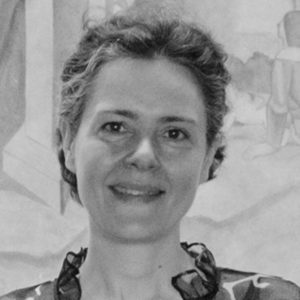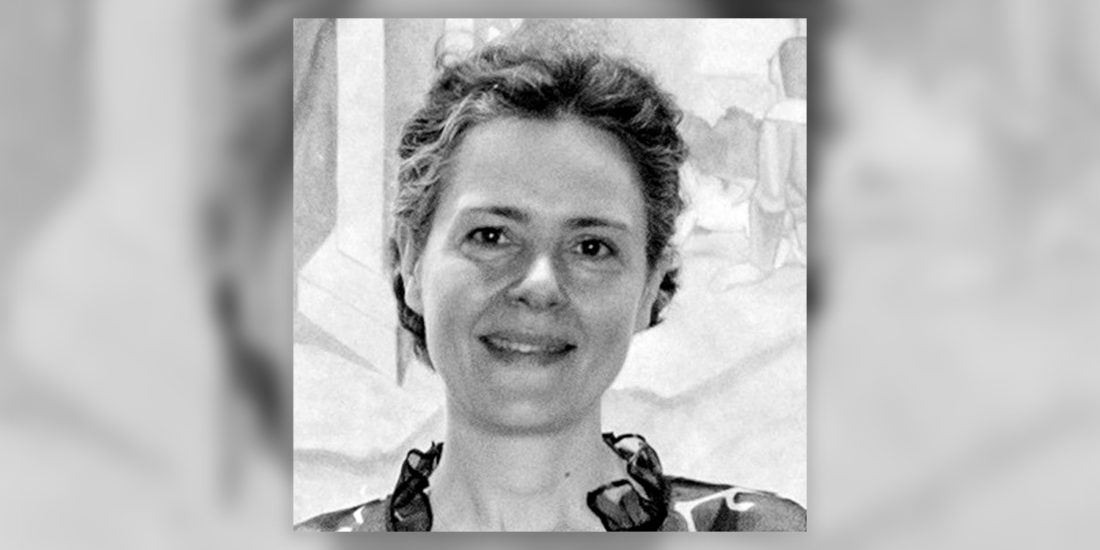Anne Liskenne of La Grande Chancellerie de la Légion d’Honneur, France, is the first speaker to be announced for The Paris Conference on Arts & Humanities (PCAH2022), which will be held alongside The Paris Conference on Education (PCE2022), June 16-19, 2022.
Mme Liskenne will be presenting a keynote titled “From Nazi Spoliations to Ongoing Restitutions in the 21st Century, an Official French Cultural Point of View”, and participating in the panel discussion “Whose Heritage? Reconsidering the Museum as a Global Commons”. Additional panellists will be announced over the coming weeks. Please follow the IAFOR social media pages for updates (Facebook / Twitter).
The PCAH/PCE2022 Organising Committee is currently calling for papers to be presented at the event. Submit your abstracts by April 1, 2022 to participate.
To participate in PCAH/PCE2022 as an audience member, please register for the conference.
The presentation will also be available for IAFOR Members to view online. To find out more, please visit the IAFOR Membership page.
Speaker Biography
Anne Liskenne
La Grande Chancellerie de la Légion d’Honneur, France
 Anne Liskenne has been the archivist of La Grande Chancellerie de la Légion d’Honneur since 2019. For almost ten years previously, she was the Head of Looted Art Archives at the French Ministry for Europe and Foreign Affairs. She made it possible for the public to get access to and make the most of the Finding Aids on the Internet fund. She has also participated in many work groups in France and Germany: the “Musées nationaux récupération” (2013-2015) within the French Ministry of Culture; the international Task Force “Schwabinger Kunstfund” created by Germany in 2013 to investigate on the origin of Cornelius Gurlitt’s collection; the reissue of Rose Valland’s book Front de l’art in 2014, which has been an essential work to help comprehend the Nazi plunder under the Occupation; and finally the publication of Hermann Goering’s collection catalog in 2015.
Anne Liskenne has been the archivist of La Grande Chancellerie de la Légion d’Honneur since 2019. For almost ten years previously, she was the Head of Looted Art Archives at the French Ministry for Europe and Foreign Affairs. She made it possible for the public to get access to and make the most of the Finding Aids on the Internet fund. She has also participated in many work groups in France and Germany: the “Musées nationaux récupération” (2013-2015) within the French Ministry of Culture; the international Task Force “Schwabinger Kunstfund” created by Germany in 2013 to investigate on the origin of Cornelius Gurlitt’s collection; the reissue of Rose Valland’s book Front de l’art in 2014, which has been an essential work to help comprehend the Nazi plunder under the Occupation; and finally the publication of Hermann Goering’s collection catalog in 2015.
From Nazi Spoliations to Ongoing Restitutions in the 21st Century, an Official French Cultural Point of View
From June 1940, the Germans occupied Paris and the whole of France in 1942. They immediately looted cultural goods - works of art, books and archives - belonging to Jewish families, galleries, Freemason associations and French services, and sent them to Germany, the main depot being in Bavaria.
In May 1945, Germany surrendered unconditionally. From this year onward, the entire restitution policy implemented by the Allied governments of the Western bloc has been based on the “London Inter-Allied Declaration Against Acts of Dispossession committed in Territories under Enemy Occupation or Control” of January 1943. In France, several services were shortly created to recover more than 100,000 looted works of art and more than 10 million books.
But in this terrible disorder, with the dispersion of hundreds of thousands of individuals, how was it possible to identify their owners? For art dealers, governments and museums, this question is still open. In an ever-changing international context, the cooperation between governments has helped the provenance research. I shall present from an official cultural perspective how this work can be done nowadays.
Whose Heritage? Reconsidering the Museum as a Global Commons
The modern museum is a product of a mania for collecting, cataloguing, documenting and archiving that reached its zenith during the nineteenth century, as the spoils of trade, conquest and colonisation began to pour back to the great European cities, and be housed in great palaces of culture and learning. Museums and galleries were places where the rich could show off with generous loans or donations as contributions towards the collective cultural wealth and prestige of the nation. These p(a)laces and their collections were recognized as of importance not just to the citizens of the countries, but to those overseas. Later this concept would be understood in the universalist language of world heritage.
Museums are unquestionably positive participants in the public good and in that of education and arts. However, how and what is presented is subject to increased questioning. A lot of what is now housed in museums is effectively the result of theft, plunder, or unfair contracts, or of dubious provenance. From colonial wars, through genocide and plunder, these great objects often hide problematic or dirty pasts. If this is the case, then what are the political, ethical and issues surrounding the righting of past wrongs, and of return of items, and how should their stories shape the positioning or works and our appreciation of them?

